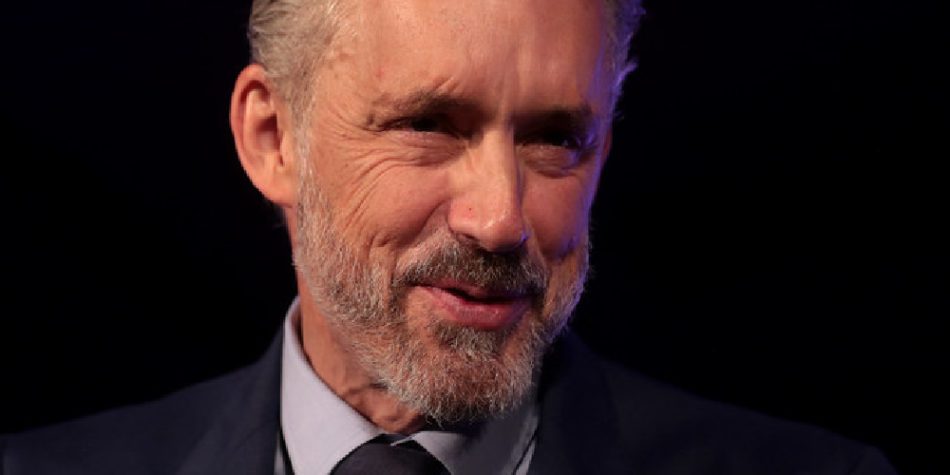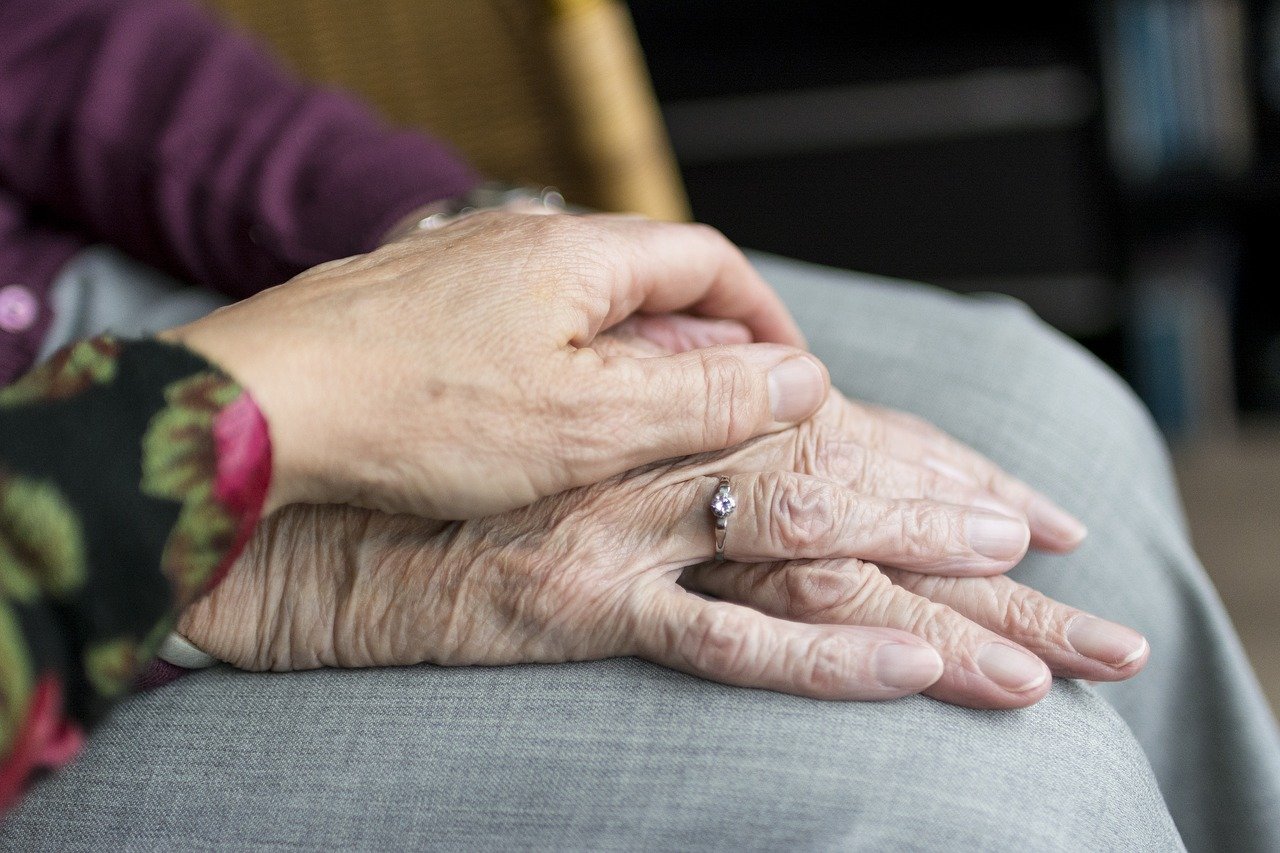By this point, most of us have at least heard of Dr. Jordan Peterson, Canadian psychologist, author, and lecturer. His rise has been a bewildering one, unpredictable and often controversial. The mere mention of his name is met with either praise or derision, prejudice or loyalty. While his fame is widespread, there is one demographic that remains largely ignorant of the work of Jordan Peterson: mothers. Yet for me, a mother of five young children—he has been an unlikely hero, counselor, teacher, and friend.
We mothers could use some help. We are charged with raising the future. And as the world appears to fall apart around us, we feel the weight of our awful responsibility. Political divisions are driving families apart, mental-health issues are skyrocketing in children, teenagers are electronics-addicted and apathetic, and young adults face the horrific reality of modern dating. Young women are increasingly giving up on the unpaid occupation of motherhood altogether. Birth rates have remarkably never been lower and many now see bearing a child as an insult to the earth. Those that are mothers often resent the “menial” nature of the work. Many mothers rely on medication just to cope.
Five years ago, with five kids under the age of eight, I wasn’t doing well. Not only was I weighed down by the daunting world in which I was called to raise children, I felt woefully inadequate as a mother. I was annoyed by the never-ending duties, and I longed for the freedom and accomplishments of my single days. All this made me discontented and distracted. I confess that hearing these encouraging words as an overwhelmed mother of five was astonishingly unhelpful.
Voices of Affirmation
In faith communities, young mothers are often reassured and praised, perhaps to compensate for the lack of such assurances elsewhere. “Mothers are Angels!” “You are all doing such a good job!” At the risk of sounding like a brat, I confess that hearing these encouraging words as an overwhelmed mother of five was astonishingly unhelpful. Rather than receiving them in gratitude, reassuring statements always seemed to come across as patronizing, shallow, and to top it off—untrue. It wasn’t that I doubted their good intentions—but I wanted something real, something honest. When I looked around at other mothers and into my own heart, I didn’t see idealized angels; I saw women full of envy, prone to gossip, and depressed. When I saw disrespectful and undisciplined teenagers in the pews or the toddlers glued to tablets, I asked myself, “Is this what a ‘good job’ in motherhood looks like?”
In the 1960s there was a campaign to change the eating habits of America. Low-fat food was pushed as a healthier alternative, free of harmful fats. They even changed milk. They kept adding water, and more water, until it was almost entirely fat-free, and tasteless. Almost all Americans bought into the “science” behind this evolution, but women, in particular, clung to it. Today, despite clear evidence showing that pretty much the only thing healthy about milk is the fat, some women remain loyal to skim milk.
Whenever I sensed a tone of condescension accompanying addresses made toward struggling mothers, it felt like a pat on the head, shallow and tasteless—like skim milk. It was never satisfying. I knew men were not getting skim milk, they were publically called to repent for their lust, pride, and greed. But not women—didn’t women need to be saved too?
One Sunday morning stands out as a low point. I sat down at church after a traumatizing morning of trying to dress five small, and particularly disobedient, children for church. I had lost my temper with my six-year-old daughter. I felt incredibly guilty—even thinking, “I’m a failure as a mother.” A man got up to speak to the congregation and said joyously, “Women, if we men could just be more like you, we would be in Zion!” A feeling of deep disappointment came over me—I was so upset that I had to sneak out the back and sit in the car. My husband, confused, asked me later why I had reacted this way. I tried to explain, “I really need to hear something I can use! I am repeatedly being told that it is all gonna be okay, you are doing great. But the house is on fire, and I started it!”
The transition to motherhood was not an easy one for me, which I will discuss further in an upcoming piece. While I felt spiritual renewal at church, I desperately needed some honest and practical wisdom on mothering. I needed to feel more confident in my abilities, and Sunday services weren’t always helping.
So I sought other voices—mommy bloggers, women’s conferences, female life coaches, and podcasters—thinking maybe these feminine experts would be more helpful. But their prevailing message was also one of unbounded affirmation, although with a different twist. For these more “empowered” women, the key to happiness was to escape the burden of motherhood. “Take time for yourself.” “Be true to yourself.” Women’s mental health, according to them, demanded more time spent on self-fulfillment. But when I looked at those seeking to follow these mommy bloggers or life coaches, I noticed that the more devoted they were to their new life philosophy, the more dissatisfied they became with motherhood. Their children and husbands often became an impediment to their true quest of “discovering themselves.” Didn’t women need to be saved too?
It was clear to me that wherever I turned, women seemed to be handled with kid gloves. In church, no one dared point out our failings. In popular culture, we were told that what was expected of us was too much for us to handle, we were “doing the best we could,” and we should concentrate on seeking “happiness.” Why was it, I wondered, at the point in human history when women are most “empowered,” that messages to women, from the pulpit to popular culture, were so watered-down and shallow.
I think it is partially due to the common sentiment: Women are hard enough on themselves already so they don’t need anyone to add to that burden. Yes, there is no doubt we are often too hard on ourselves. I was too hard on myself five years ago when I labeled myself a “failure.” We tend to condemn ourselves for any imperfection. But a misplaced logic has followed that because of this propensity to catastrophize over faults, we should stop examining them. This won’t do, because much of our “burden” is made up of our faults, and refusing to recognize them can have a devastating impact on our progress. The coddling of women has only increased our burden. In the last 100 years, as financial and social stability has left women with time and energy to seek out affirmation and happiness, we are being fed a steady diet of comforting messages, like “You are doing such a great job!” As a result, should anyone really be surprised that in our Age of Affirmation, women are desperately unhappy? (See “The Paradox of Declining Female Happiness” and “Women’s Modern Plague of Unhappiness.”)
The more I dove into the “affirming world of women,” the more I concluded that it was not going to help me, for, if the stats were right, it didn’t seem to be helping anyone. What I needed was help in achieving my goal—being a “good” mother.
A Voice of Respect
As I’ve noted, while women are addressed with overflowing validation and approval, men are often addressed with a strong dose of rebuke. Without something more, both tactics can be ruinous to the individuals consuming them. Independent of gender, what we all need is not unmitigated validation or rebuke—but honest encouragement. This is what I found in Jordan Peterson.
One of the first videos I saw of Jordan Peterson told me that his voice was different. He told the story of a woman
reclining on her psychiatrist’s couch talking about her many problems.
After explaining her plight, she tells her therapist, “My only hope is that all of this is my fault.”
“Why is that?” asked the surprised therapist.
“Because then I can do something about it.”
Dr. Peterson went on to explain the necessity, and purpose, found in taking responsibility for our difficulties and being honest about our contribution to them. “Get your act together bucko!” is his common tagline.
I heard him describe the archetypal “Devouring Mother” and the damage she could reap on her children. My suspicions were confirmed that mothers were not faultless, and neither was I. Here was someone that didn’t use kid gloves.
His voice said something starkly different than the other “encouragers” I had sought before. The marked difference helped me recognize what had been missing—respect. In his words, there was no sign of patronizing. No hints of shallow affirmation. No suggestions to shirk responsibility. He spoke the difficult truth and trusted that I, the one listening, could handle it. He kept the fat in the milk and I finally tasted something. He told me clearly that I can do better. He focused on the purpose, meaning, and depth of life. And I, a struggling mother, felt no burdensome condemnation either. It was the kind but firm voice I had been looking for. Here was the friend I didn’t know I needed.
“There’s a bunch of ways that you are not being everything you could be, and it’s not supposed to be a whip to knock you down, although it could be a whip to knock down the pride which stops you from being aware of your insufficiencies … it’s more like a call … you can be so much more than you are!”
Jordan Peterson
In his lectures, books, and podcasts, I heard from a man that passionately cared. He wasn’t concerned with my comfort, instead, he actually wanted things to improve for me. And the way things improve is through struggle. I now knew I would need to examine the weak points in my mothering—and overcome them. He did for me what all encouragers should, he ignited my courage. I, an average mother—could become a great one. In reality, Jordan Peterson doesn’t know me from Eve (although he has, amazingly, shown support for my work by sharing a few of my articles). But he has become my friend nonetheless.

The Call To Become a Good Mother
Five years ago, sitting in that car angry at a well-meaning statement, I wasn’t the woman or the mother I could have been. Things weren’t as dire as I imagined. I was having a bad day. Nevertheless, I did feel hopeless. Not from lack of affirmation, not from repression or overwork, but because I was disappointed in myself. I had just lashed out unfairly at my sweet little daughter. That was a burden I carried; and for me, it was a heavy one. It joined the weight of my feelings of inadequacy. I didn’t want to be told that I was a good mother. I knew I wasn’t (not in that moment). I didn’t want to be told I was taking on too much burden in raising her. I wasn’t—I am her mother. What I wanted, and what I found in Jordan Peterson, was another person to help me, to teach me—This is why you yelled, this is why you shouldn’t, this is how you can prevent it, and yes, you can build a beautiful and profoundly important relationship with your daughter.
While I don’t suggest you lean too heavily on Jordan Peterson for your theological foundation, his message is fundamentally a Christian one—sin is real, we are fallen, but there is redemption. And despite what some pastors may say, women are sinful too. There is no skim milk version of salvation. Like men, we must recognize our envy, our pride, our hedonistic tendency. We should seek to understand our nature so we can avoid being a slave to it. Only in these honest reflections can we attempt to improve. The awareness of our sins does not condemn us—but the willful ignorance of them may. Sin is a “missing of the mark,” and as women get by on the watered-down affirmations found in the modern world, we risk losing sight of the mark, of our ideal. That ideal is Christ. Only He can bring us to a full understanding and healing of our weakness, and our sin. But it helps to hear voices, such as Dr. Peterson, that don’t allow us to live in naivete and ignorance but who provide tools, knowledge, and confidence that can help us improve.
“What you aim at determines what you see.” Jordan Peterson
Now, five years later—after consuming hundreds of hours of Dr. Peterson’s lectures, reading dozens of his and others’ books, listening to countless podcasts, introspecting and pondering his content for months and years, after starting a website, and writing over a hundred research pieces—the honest, kind, and blunt voice of Dr. Peterson still brings me hope. I am a more balanced woman, a more resilient person, a more devout Christian, and a better mother because of his wisdom.

Women need to listen to Jordan Peterson. You won’t find the failed doctrines of today: overdone affirmation or justification for pleasure-and-fulfillment-seeking. And you will gain from the lack of flattery and lowered expectations. The stereotype of the fragile and shallow woman is only grounded in the truth we give it. If we want to be strong—we can’t seek shelter from the harsh truth of our own folly. We can’t be naive or passive. Women have tremendous power. We influence our children and the world through our spirituality, intellect, nurture, and love. If we continually listen to voices that keep us complacent, that reassure us into submission, or twist our desire for joy into selfishness—we will become fragile women. If we seek out skim milk, then meat will seem too heavy for us.
“Jesus saith unto them, My meat is to do the will of Him that sent me, and to finish His work” (John 4:34).
Familiarizing yourself with Dr. Jordan Peterson
So what is the “meat” that Jordan Peterson offers? It is just what mothers need. It is practical and intellectually stimulating knowledge, of incredible breadth and depth, which we can use to do the work God has given us—helping us become “good mothers,” raise the next generation, and find some joy and meaning as we do so. Our role as mothers is desperately important.
Over the next few weeks, I’ll be digging more here at Public Square magazine into a few of Jordan Peterson’s core messages—taken from his books and lectures—and applying them to our lives as women, and our role as mothers. I hope you will also find in him the friend you didn’t know you needed. It wasn’t happiness I was concerned with, I wanted to be a good mother.
- Jordan Peterson on Motherhood
- Jordan Peterson on Political and Controversial Issues
- Jordan Peterson on Mental Health
And here are some of my own favorite specific clips from his teaching:

















